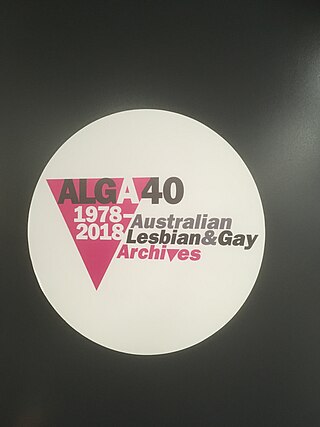
The cultural life of Sydney is dynamic and multicultural. Many of the individual cultures that make up the Sydney mosaic are centred on the cultural, artistic, ethnic, linguistic and religious communities formed by waves of immigration. Sydney is a major global city with a vibrant scene of musical, theatrical, visual, literary and other artistic activity.

The West Australian is the only locally edited daily newspaper published in Perth, Western Australia. It is owned by Seven West Media (SWM), as is the state's other major newspaper, The Sunday Times. It is the second-oldest continuously produced newspaper in Australia, having been published since 1833. It tends to have conservative leanings, and has mostly supported the Liberal–National Party Coalition. It has Australia's largest share of market penetration of any newspaper in the country.

Curve is a global lesbian media project. It covers news, politics, social issues, and includes celebrity interviews and stories on entertainment, pop culture, style, and travel.

The Star Observer is a free monthly magazine and online newspaper that caters to the lesbian, gay, bisexual, transgender and intersex communities in Australia.

Gay pulp fiction, or gay pulps, refers to printed works, primarily fiction, that include references to male homosexuality, specifically male gay sex, and that are cheaply produced, typically in paperback books made of wood pulp paper; lesbian pulp fiction is similar work about women. Michael Bronski, the editor of an anthology of gay pulp writing, notes in his introduction, "Gay pulp is not an exact term, and it is used somewhat loosely to refer to a variety of books that had very different origins and markets". People often use the term to refer to the "classic" gay pulps that were produced before about 1970, but it may also be used to refer to the gay erotica or pornography in paperback book or digest magazine form produced since that date.

The Frameline Film Festival began as a storefront event in 1976. The first film festival, named the Gay Film Festival of Super-8 Films, was held in 1977. The festival is organized by Frameline, a nonprofit media arts organization whose mission statement is "to change the world through the power of queer cinema". It is the oldest LGBTQ+ film festival in the world.

The Australian Queer Archives (AQuA) is a community-based non-profit organisation committed to the collection, preservation and celebration of material reflecting the lives and experiences of lesbian, gay, bisexual, transgender and intersex LGBTI Australians. It is located in Melbourne. The Archives was established as an initiative of the 4th National Homosexual Conference, Sydney, August 1978, drawing on the previous work of founding President Graham Carbery. Since its establishment the collection has grown to over 200,000 items, constituting the largest and most significant collection of material relating to LGBT Australians and the largest collection of LGBT material in Australia, and the most prominent research centre for gay, lesbian, bisexual, trans and intersex history in Australia.
Lizzy the Lezzy is an animated stand-up comedy series about a woman called Lizzy who talks mostly about lesbian interests. The sketches contain graphical sexual material but not graphic imagery.
AustLit: The Australian Literature Resource, usually referred to simply as AustLit, is an internet-based, non-profit collaboration between researchers and librarians from Australian universities, led by the University of Queensland (UQ), designed to comprehensively record the history of Australian literary and story-making cultures. AustLit is an encyclopaedia of Australian writers and writing.

The Sydney Mail was an Australian magazine published weekly in Sydney. It was the weekly edition of The Sydney Morning Herald newspaper and ran from 1860 to 1938.
Fran Kelly is an Australian radio presenter, current affairs journalist and political correspondent who hosted the Australian Broadcasting Corporation's Radio National program Breakfast from March 2005 to early December 2021.
Table Talk: A Journal for Men and Women, was a weekly magazine published from 26 June 1885 until September 1939 in Melbourne, Australia. It was established in 1885 by Maurice Brodzky (1847–1919), who obtained financial assistance to start his own publication after resigning from The Herald.
The following is a timeline of lesbian, gay, bisexual, transgender and queer (LGBTQ) journalism history.
Shobhana S. Kumar, an Indian female entrepreneur, who started India's first online queer (LGBT) bookstore, Queer-ink.com.
Frances "Franco" Stevens is the founding publisher of Curve Magazine, a leading international lesbian lifestyle magazine, and the subject of the 2021 documentary film Ahead of the Curve.
Louise Wadley is an Australian film director, producer, writer, and cinematographer. She is best known for her piece All About E (2015), which she wrote and directed. Wadley is also a director and contributor to Girl’s Own Pictures, which released All About E as its debut film.
Peter de Waal is an Australian LGBT rights activist and author. He was a foundation member of the Campaign Against Moral Persecution (CAMP) and participated in the first Sydney Gay and Lesbian Mardi Gras.
The 78ers are a group of LGBT activists who marched in the original Sydney Mardi Gras on 24 June 1978 and participated in the subsequent protests against police violence and the arrests of participants in the Mardi Gras. In 1997 a small group of people who were part of the 1978 events contributed to planning the commemoration of the 20th anniversary of the Sydney Mardi Gras parade in 1998. This group became known as the 78ers and has led each year's Mardi Gras parade since 1998.








